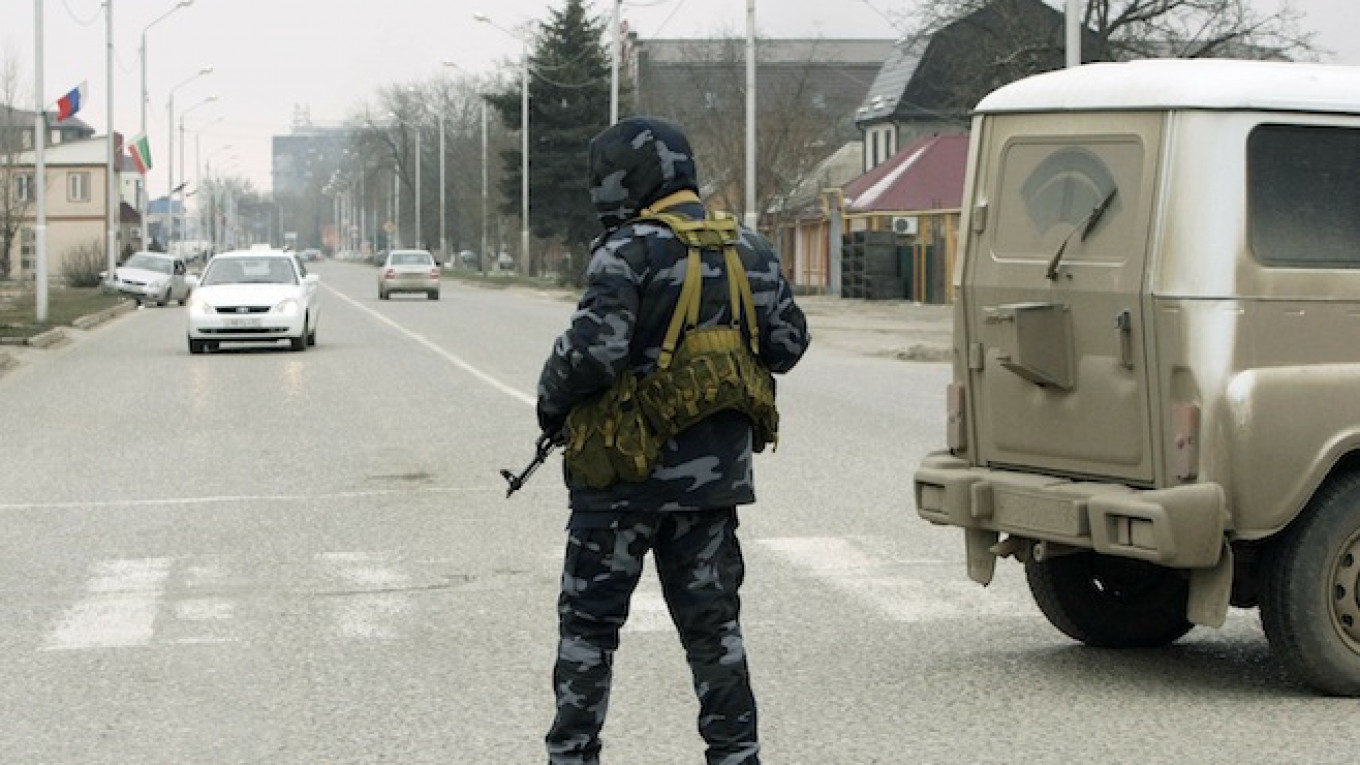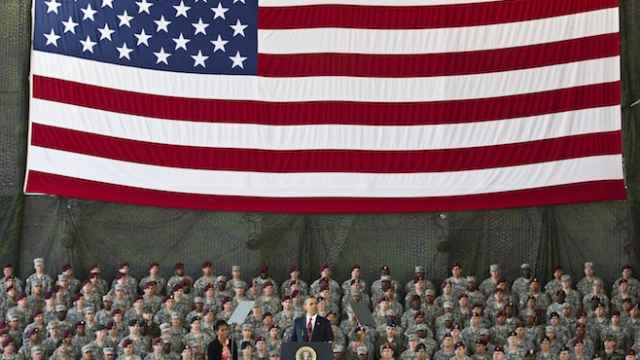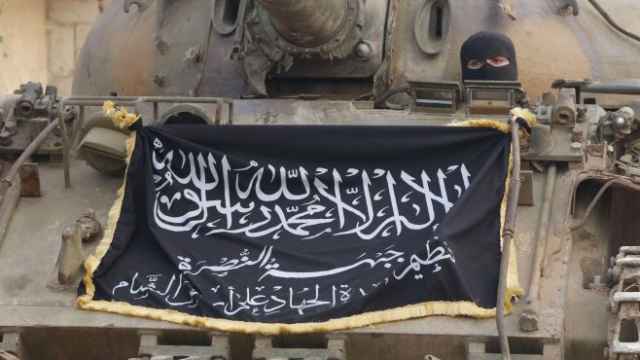Less than a week after an attack on Grozny claimed 14 police officers' lives, the head of Russia's Federal Security Service said the nationwide terror threat has declined almost threefold since last year.
Alexander Bortnikov said at a meeting of the National Anti-Terrorism Committee on Tuesday that 59 planned terror attacks had been foiled over the year and 30 aspiring individual terrorists had been thwarted, TASS news agency reported.
“Thanks to the implementation of a range of counter-terrorism measures, the yearly trend of a reduction in the number of terrorist acts on Russian territory has been preserved: with a nearly three-fold decline as compared with last year's figures and a four-time reduction compared with 2012,” Bortnikov was cited as saying.
This year there have been 78 terrorism-related crimes recorded, he said. In comparison, there were 218 last year.
Bortnikov conceded, however, that a serious threat still remains, “and the events of Dec. 4 in Grozny are testament to that,” TASS reported.
In Russia's turbulent North Caucasus region, where security services have been battling members of an Islamist insurgency for years, 233 militants were killed this year and 637 militants detained, Bortnikov said.
He added that: “272 homemade explosives were confiscated while being illegally trafficked, as well as a significant number of firearms and other weapons.”
While Bortnikov noted significant progress in the nation's fight against terrorism this year, he said the security services would face a tough year ahead. Counter-terrorism work is set to be intensified in both the newly acquired Crimea and in the Arctic.
One of the National Anti-Terrorism Committee's priorities in 2015 will be to enhance counter-terror efforts in Crimea, with a regional system for fighting terrorism set to be established on the peninsula, Bortnikov said.
The Arctic has also gotten special attention from the FSB and the committee, Bortnikov said, with counter-terrorism drills conducted there for the first time ever earlier this year and a plan devised for responding to any terrorist threats in the region.
Contact the author at a.quinn@imedia.ru
A Message from The Moscow Times:
Dear readers,
We are facing unprecedented challenges. Russia's Prosecutor General's Office has designated The Moscow Times as an "undesirable" organization, criminalizing our work and putting our staff at risk of prosecution. This follows our earlier unjust labeling as a "foreign agent."
These actions are direct attempts to silence independent journalism in Russia. The authorities claim our work "discredits the decisions of the Russian leadership." We see things differently: we strive to provide accurate, unbiased reporting on Russia.
We, the journalists of The Moscow Times, refuse to be silenced. But to continue our work, we need your help.
Your support, no matter how small, makes a world of difference. If you can, please support us monthly starting from just $2. It's quick to set up, and every contribution makes a significant impact.
By supporting The Moscow Times, you're defending open, independent journalism in the face of repression. Thank you for standing with us.
Remind me later.






